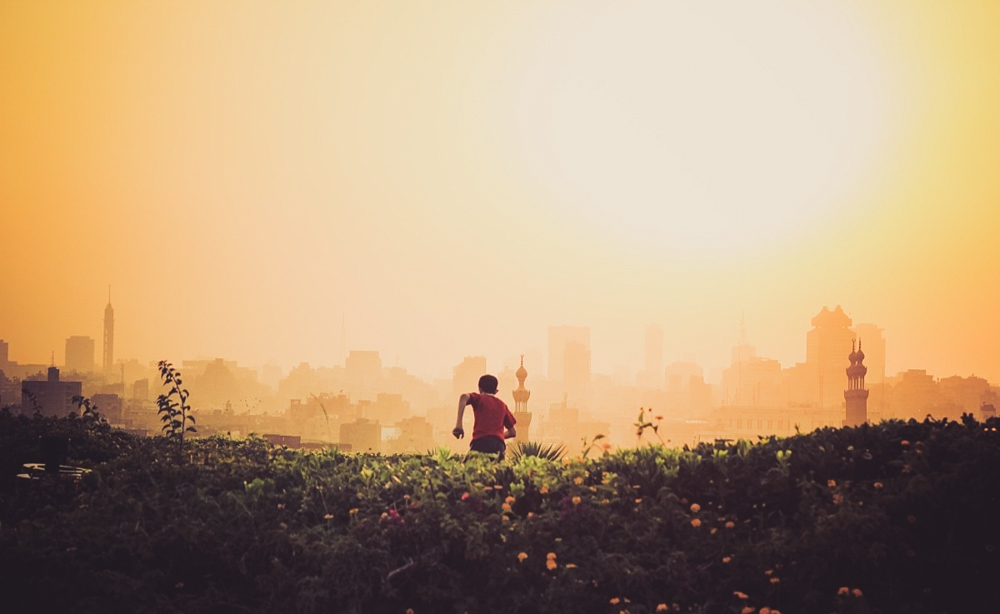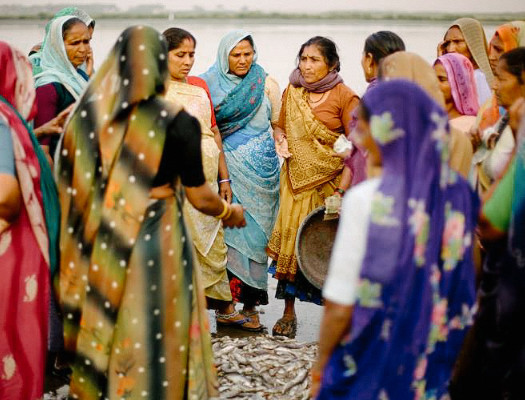The 4 Areas of Progress 4 Years after the Rana Plaza Factory Collapse
 It has been four years since the Rana Plaza Factory collapsed in Dhaka, Bangladesh, killing 1,134 people and injuring over 2,500 in one day. The world watched in horror as the bodies of garment workers were pulled from the wreckage of a building that many workers, just that morning, had voiced concerns of noticeable cracks in the structural walls. It is unfortunate that it often takes a tragedy of this magnitude to demand change. Looking back, here are 4 areas where I see progress in the 4 years since the collapse.
It has been four years since the Rana Plaza Factory collapsed in Dhaka, Bangladesh, killing 1,134 people and injuring over 2,500 in one day. The world watched in horror as the bodies of garment workers were pulled from the wreckage of a building that many workers, just that morning, had voiced concerns of noticeable cracks in the structural walls. It is unfortunate that it often takes a tragedy of this magnitude to demand change. Looking back, here are 4 areas where I see progress in the 4 years since the collapse.
However, if you break that down, there’s still more that needs to be done. We must consider that many of the survivors incurred severe injuries such as loss of multiple limbs, which resulted in high medical bills and prohibited them from finding any real future work (in a country where opportunity is already limited). It’s just not enough. Rather than a payout, I’d love to see the responsible brands provide meaningful employment moving forward for each victim and their family to ensure they have a healthy future ahead of them.
- The Accord on Fire & Building Safety was formed directly after the collapse to begin auditing and enforcing building safety in Bangladesh. The Accord has since seen over 200 brands commit to only working with the 1,600+ factories committed to shaping up. They have closed 147 factories not deemed suitable for safe work, and have trained workers and managers to understand the importance of building safety, who now operate on a see-something-say-something system. But only 18% of their factories have completed 90% of the compliance standards leaving the lion’s share lagging behind schedule in corrective action plans.
- The Alliance for Bangladesh Work Safety, consisting of primarily North American brands, is currently helping 765 factories get up to code. They have suspended 79 factories that could not meet requirements and have trained over 1.2 million workers in basic fire safety. However, with only 5% of the factories completely meeting all of their requirements, there is still much work to be done. Bangladesh has over 5,000 factories in total, so it is my hope to see a better strategy for getting these factories completely up to code in the next couple years.
- Unions have been on the rise. The Bangladeshi government, which used to register only a few unions, amended the law only 3 months after the collapse making it easier for workers to unionize. This change resulted in 50 new unions forming in the first year alone, but the law is still tough. A union must obtain 30% of the factory employees’ support to be registered, and in some factories where thousands are employed that is no small feat. But, the largest hurdle union organizers face is co-workers being unwilling to join due to harassment and often deadly threats from management. Even as recently as this January over 1,500 workers lost their jobs due to protesting for higher pay. If brands work with only ethically certified factories, where unionization is permitted without reprimand, we can ensure our products are supporting those who make them.
Fashion Revolution, formed in 2013 shortly after Rana Plaza, is an organization committed to driving this conversation. First, by creating Fashion Revolution Day on April 24th, the anniversary of the collapse, and deeming it’s surrounding week, Fashion Revolution Week, they have been able to anchor this important conversation. Then, by launching the #whomademyclothes campaign they have been able to facilitate a conversation between consumers and brands and gain the momentum needed to push this movement forward. Fashion Revolution Week 2016 saw a 448% growth from 2015 with 70,000 posts of fashion revolution related hashtags, 1,251 brands responding, including 372 major brands, and over 2,600 producers and makers had their voice heard by responding with the #imadeyourtclothes. They’ve seen this conversation span 92 countries so far, and over 800 events occur just last year alone. By speaking up we are closing the gap from consumers to brands to makers and it’s inspiring to witness the resulting change.
Want to shop some ethical fashion brands, participate in Fashion Revolution Day, or just general learn more about ethical fashion? Come to our Fashion Revolution Day NYC event happening April 24th in New York. Starting off with an inspiring panel moderated by Conscious Magazine, and followed by cocktails, food, and fun. Network your way around the room as you shop the ethical pop up shop and take photos in the #whomademyclothes photo booth! Get your tickets today because they’ll be gone before you know it!
FROM THE EDITOR
At Conscious, we are inspired by stories that cause us to think differently and think big-picture, and so we set out to tell stories with the help of leaders and influencers within the social good community. You can read more stories like this when you join as a member.


